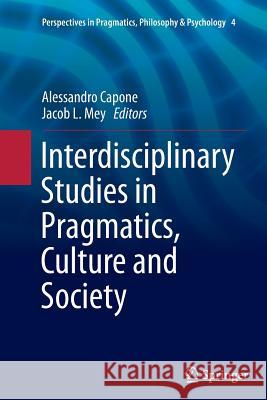Interdisciplinary Studies in Pragmatics, Culture and Society » książka
topmenu
Interdisciplinary Studies in Pragmatics, Culture and Society
ISBN-13: 9783319371832 / Angielski / Miękka / 2016 / 990 str.
Kategorie:
Kategorie BISAC:
Wydawca:
Springer
Seria wydawnicza:
Język:
Angielski
ISBN-13:
9783319371832
Rok wydania:
2016
Wydanie:
Softcover Repri
Numer serii:
000471011
Ilość stron:
990
Waga:
1.37 kg
Wymiary:
23.39 x 15.6 x 5.03
Oprawa:
Miękka
Wolumenów:
01
Dodatkowe informacje:
Wydanie ilustrowane











